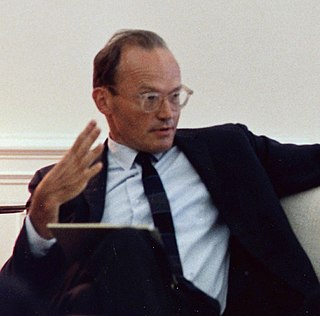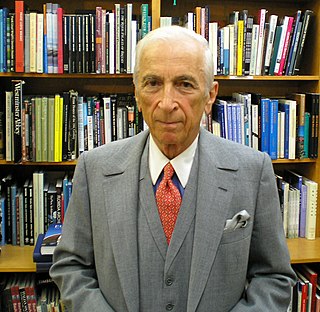A Quote by Maureen Johnson
Being an author means, almost by definition, that you make up characters and then complicate their lives. That's it, really. You make up characters and give them problem after problem after problem.
Related Quotes
Something is amiss, deeply wrong, something is deeply wrong with the way we're living our lives collectively, with the way we are creating our collective experience on earth. And we are coming to the conclusion that the problem after all is not political, that the problem after all is not economic, that the problem after all cannot be solved with bombs or missiles or bullets, but that the problem in fact is spiritual, that the problem with the world today is as it has always been, a problem of our most basic beliefs. Without a doubt it`s a spiritual awakening and a spiritual revolution.
When you start looking at a problem and it seems really simple, you don't really understand the complexity of the problem. Then you get into the problem, and you see that it's really complicated, and you come up with all these convoluted solutions. That's sort of the middle, and that's where most people stop... But the really great person will keep on going and find the key, the underlying principle of the problem - and come up with an elegant, really beautiful solution that works.
There is no explanation you can give that will explain away all the sufferings and evil and torture and destruction and hunger in the world! You'll never explain it. Because life is a mystery, which means your thinking mind cannot make sense of it. For that you've got to wake up and then you'll suddenly realize that reality is not the problem, you are the problem.
Our problem is not that we're fallen; our problem is we haven't become human yet. The question is, what can make us human, so that we can give life away and give love away and not be grasping after trying to protect our own lives all the time? That's the way I see the Jesus story, and I think it's a powerful and profound story.
It's my opinion that, if Barack did want to solve the gang problem, number one would be to work with people from the inside out, people who can actually give him an accurate analysis of the problem in L.A., because they're in it or at one point were a part of it, and now they're workin' to change it, and redirect the energy and the focus of it. And then consciously take steps to solve the problem. But I don't feel like zero tolerance, strict laws, locking everybody up is a viable means to stop that problem.
If we want to impact hundreds - or millions - of people, we have to do things differently. If we look at the problem as an infrastructural problem, we cannot make an impact because it requires a lot of effort. But when we convert this problem into a knowledge problem, suddenly the problem is manageable.
When I write fiction, I have the illusion of being able to control these fictional worlds and these characters, and to make them say what I want them to say. Of course, the problem is that it is an illusion, and by the end of it you realize that you're not in control of it at all; the characters have taken over, and they're driving the vehicle.
Look at all the things that can go wrong for men. There’s the nothing-happening-at-all problem, the too-much-happening-too-soon problem, the dismal-droop-after-a-promising-beginning problem; there’s the size-doesn’t-matter-except-in-my-case problem, the failing-to-deliver-the-goods problem…and what do women have to worry about? A handful of cellulite? Join the club. A spot of I-wonder-how-I-rank? Ditto.



































